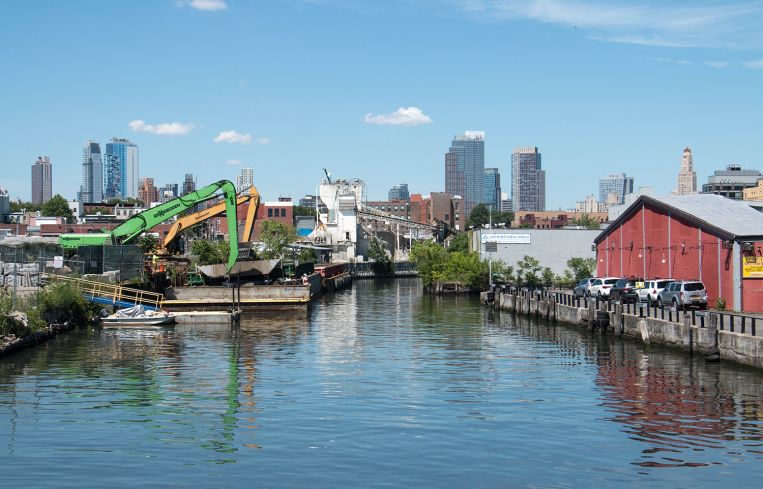Gowanus Rezoning Should Be an Unmitigated Triumph. Why It’s Not.

Nov. 23 marked the one-year anniversary of the City Council’s approval of the Gowanus rezoning. Despite some last-ditch legal challenges, the area-wide rezoning is generally viewed as a model of what is possible when the public and private sectors come together and engage in a real collaborative process to shape the future of a neighborhood.
The potential impact of the rezoning is a clear win-win for Brooklyn: approximately 8,500 units of new housing, 3,000 permanently affordable; 6 acres of new open space along a cleaned-up Gowanus Canal; new commercial and community space; and thousands of jobs.
But at a time when we should celebrate the success of this massive community planning effort and look forward to new housing coming online to help address the city’s housing crisis, the confluence of ever-changing market dynamics and public policy decisions has instead created a perfect storm that threatens to dampen the rezoning’s impact.
The unfortunate expiration in June of the state’s tax incentive program known as Affordable New York, or 421a, essentially put the brakes on any meaningful activity post-rezoning, save for a few large one-off deals that had done the work to qualify for the now-expired tax abatement. And inflationary pressures and rising interest rates are already causing higher construction and borrowing costs and tighter lending standards. The effect of this dynamic has started taking its toll. Total investment sales dollar volume in Brooklyn dropped 36 percent from just over $3 billion in the second quarter to $1.95 billion in the third, according to a TerraCRG market report.

Moreover, while the job market is strong and demand for market-rate housing continues to be robust, the lack of consistent supply of market-rate units has caused rents in Brooklyn to rise rapidly — 6 percent over the last 12 months — creating an even bigger affordability crisis.
As it stands now, filed permits for the Gowanus development sites that commenced construction before the 421a expiration — a key requirement to qualify for the tax incentive — show approximately 4,000 units currently planned or in the pipeline. That this many are in the works is something of a miracle in itself, and it remains to be seen how many of these projects can be built before the completion deadline in 2026.
Credit is owed first to the city’s vision and tenacity in sticking with the rezoning framework despite the many hurdles along the way, and also to the many community stakeholders who chose to engage within the public approvals process to forge a neighborhood coalition that extrapolated even more benefits for the area than originally contemplated. Kudos also go to developers who took the rezoning risk and expended the capital needed to secure sites while they waited for the neighborhood’s future to play out.
However, for many more would-be private developers who adopted a more cautious approach and waited on the sidelines until it was clear the Gowanus rezoning would be approved, the opportunity to chip away at the city’s housing shortage in this neighborhood has largely stalled. Most of the area’s large available sites have already traded hands, while those parcels that might otherwise be available now are hanging in limbo due to the expiration of 421a.
This policy indecision has a chilling effect on the market that translates into tangible losses for the city and its residents. Precisely when the remaining 4,500 or so units cleared by the Gowanus rezoning get built depends upon a robust economy, yes, but also on state lawmakers coming through for the city to help address the housing and affordability crisis. Each day of waiting that passes just worsens the problem — and makes the imperative to build that much greater.
Dan Marks is a partner at TerraCRG, a Brooklyn-based commercial real estate brokerage active in development site sales in the Gowanus neighborhood.



